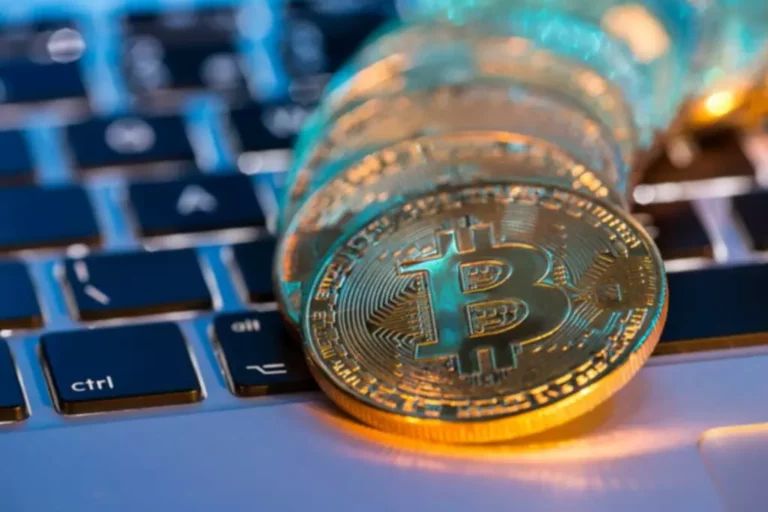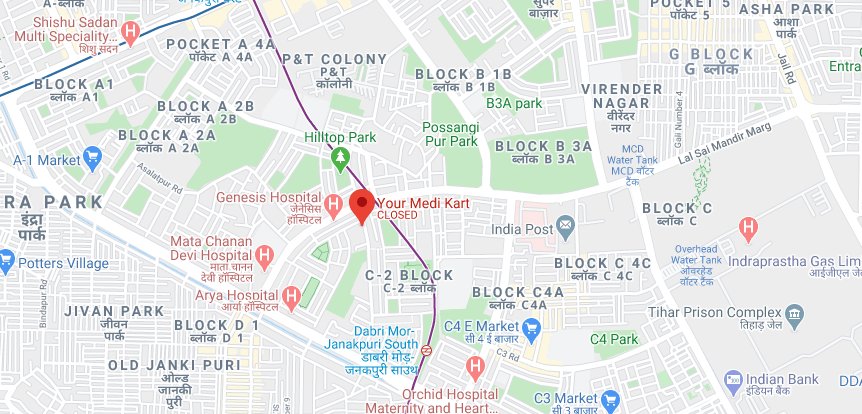Due to cryptocurrency’s pseudonymous nature, criminals use it to launder illicit funds and commit tax evasion. The regulation of cryptocurrency improves its total reputation and makes certain that applicable taxes are collected. Improvements in AML profit legitimate crypto users, though it does require additional time and effort investment by all parties. Individual governments and multinational organizations like the FATF legislate in opposition to cash laundering actions. A risk-based compliance programme permits institutions to allocate resources to more effectively align with their AML risks. Used successfully, KYC can help financial establishments replace obsolete verification methods, perform numerous very helpful companies, similar to screening and registering new users and make positive that high-profile transmittals are fully compliant.
- KYC applications demonstrate energetic danger evaluation on the part of exchanges, helping to stabilize the market through elevated trust and therefore use.
- For the almost 2 billion folks on the planet and not using a bank, crypto exchanges provide entry to beforehand inaccessible companies.
- Not only is the process time-consuming, however the wait-times for handbook verification can be prolonged — In some circumstances, as a lot as 30 days.
- For exchanges to work, folks need to commerce cash, and to trade coins, clients must belief that their money is protected.
Importantly, AML legislation covers cash laundering risk in cryptocurrencies and fiat currencies. However, there’ll absolutely be extra amendments and complexities that arise from the chances of cryptocurrency and the difficulties that financial institutions face from the decentralization of monetary activity. Anti-Money Laundering (AML) refers back to the prevention of unlawful cash movement around the globe by an order of laws.
What’s Anti-money Laundering (aml) & How Does It Apply To Crypto?
FINRA is a non-governmental Self-Regulatory Organization (SRO) that ensures monetary establishments adjust to the Bank Secrecy Act. In addition to those basic KYC measures, banks must also undertake periodic document updates, assign a threat stage to every buyer and monitor their transactions. EDD sprung into existence with the USA PATRIOT Act of 2001, where financial institutions such as offshore and private banks had been suddenly required to conduct a greater screening of their shoppers. KYC may be divided into two normal risk-mitigation layers which may be recognized and used around the world. These are Customer Due Diligence (CDD) and Enhanced Customer Due Diligence (EDD).
The regulatory environment on cryptocurrency and different digital assets is becoming extra advanced, like the objects of regulation themselves. Even though financial services regulators maintain institutions to the identical AML Regulations Apply to Crypto Exchanges requirements, whether or not they handle digital or fiat currencies, regulators do recognise that the domain of virtual property is growing quickly. As a outcome, laws on digital currencies and digital property are multi-part.
If nations are planning their own CBDCs, there is a robust argument to suggest that elevated regulation imposed by governments would prevent personal coins from outcompeting these central currencies. In the US, the Treasury Department’s Office of Foreign Assets Control (OFAC) considers non-compliance to be a serious danger to national security, because it invites money laundering, which harms economies and strengthens felony activity. For prospects to really belief in a system, they should know that the system is assessing dangers to protect its customers. KYC applications reveal lively risk evaluation on the part of exchanges, serving to to stabilize the market via elevated trust and subsequently use. One of essentially the most well-established exchanges, Coinbase, permits users to send and retailer cryptocurrency with out full KYC procedures being activated.
What Users Want To Finish Crypto Change Kyc
Most crypto exchanges require that new customers share their full authorized name, government-issued ID, and up-to-date address information during onboarding, however this varies in accordance with the place the exchange operates and what companies it supplies. Effective AML processes within cryptocurrency companies are just as important. With steady transaction monitoring, compliance officers can stop many of those schemes before they even begin.

While the platform supports various fiat currencies, customers who are solely utilizing crypto don’t need to complete KYC. Users can deposit, trade, and withdraw crypto with none id verification procedures. To deposit and trade https://www.xcritical.in/ fiat, customers must confirm themselves with an tackle, cellphone quantity, proof of tackle, and two forms of government-issued ID.
Check the analysis report on Top-rated Crypto Wallets that are most secure for your funds. Not only that, but GetID’s state-of-the-art platform ensures compliance with all present and future AML legislation. Instead of expensive, arduous processes, GetID solves the issues inherent in susceptible manual KYC. With the correct KYC and AML procedures in place, entities protect themselves in opposition to these lofty on-compliance fines.
Cryptocurrency, Meet Aml And Kyc
Except when cryptocurrency enters centralised crypto exchanges, mixers or tumblers, indirect exposure in crypto can be measured to a degree. A cryptocurrency holder could possess multiple wallets to gather and switch funds to intermediary non-service addresses on their method to a service address, corresponding to a crypto trade, via what are known as ‘hops’. Complying with crypto AML regulations can mitigate money laundering and terrorist financing risks.

Crypto laws turn out to be interesting—and convoluted—once you think about the shortage of a centralized network. In truth, that is in all probability the explanation legislation has been so slow catching as much as crypto crime. For instance, using a hardware or paper pockets makes it inconceivable for anybody, such as a regulator, to access or move these funds without the wallet’s private key, however this doesn’t instantly qualify as suspicious behaviour. Many buyers use hardware wallets to protect their investments from theft, and these actions need to be considered with context before any assumptions are made. The actual challenge with digital asset AML policies is discerning between actual bad actors and people making an attempt to guard their investments. Since cryptocurrencies operate on decentralized networks, this makes it extremely troublesome to track funds, especially when routed via totally different geographic locations.
How Are Main Crypto Exchanges Performing Kyc?
However, many of the AML non-compliance comes from a company or change, so oftentimes there is not a single individual to be held responsible. Even if a company appoints an AML compliance officer, it doesn’t essentially mean anyone else within the company categorically cannot violate AML guidelines. The two states with probably the most crypto movement—and GDP—are New York and California. In New York, jurisdiction falls under the Department of Financial Services, requiring a license referred to as BitLicense to manage industrial crypto transfers, gross sales, purchases, or issuances. The U.S. Patriot Act not solely severely elevated the scrutiny both the banking system and the typical citizen are subjected to, however it paved the means in which for more concerned surveillance and reporting laws to be written into law.
Pockets Screening
While KYC implementation offers a worthy enhance to world AML/CFT efforts, regulators made it clear in 2019 that isn’t sufficient. While KYC, when done accurately, helps to put a name and face to a public blockchain address, its static nature and inconsistency as utilized by particular person VASPs, limits its scope. Led by AML watchdogs like the Financial Action Task Force (FATF), nations develop their very own measures to fight domestic money laundering, and policies can differ significantly from country to country. However, FATF’s Crypto Travel Rule now requires institutions to receive and sanction display screen the counterparty VASP’s buyer data and perform due diligence on the counterparty VASP.
High Spot Exchanges
Additionally, their end-users profit from understanding that their transactions are safe, trusted, regulated, and compliant and received’t be routed to sanctioned people. Additionally, Notabene’s state-of-the-art compliance software consists of highly effective integrations for transaction monitoring and VASP due diligence. From there, the baton gets passed on to virtual asset service providers (VASPs)—a group that FATF defines to incorporate crypto exchanges, stablecoin issuers, and, on a case-by-case foundation, some DeFi protocols and NFT marketplaces. These companies do the heavy lifting to cease cash laundering by employing AML compliance officers, requiring know-your-customer checks, and continuously monitoring cryptocurrency transactions for suspicious exercise. Money laundering is a world concern that impacts both fiat forex and cryptocurrencies. To fight the financing of criminal exercise, regulatory bodies have rushed to enact stringent anti-money laundering (AML) laws to stop cash laundering through cryptocurrency exchanges and custodian services.
However, to buy and promote cryptocurrency, users must full a full KYC procedure, submitting official documents and PII. In the USA, crypto exchanges and custodial companies are ruled by FinCEN’s 2011 Money Service Business Final Rule. This signifies that all cryptocurrency exchanges must perform KYC and set up efficient AML packages, regardless of the currencies they assist.
To meet AML compliance necessities, establishments must gather information about counterparties to discover out whether or not the movement of funds is suspicious. Even although crypto pockets addresses and the motion of funds are visible in virtual asset transactions on public blockchains, attribution of those addresses usually requires additional analytical instruments. For instance, digital asset monitoring firms have attributed pockets addresses to legal and high-risk entities, together with these which are topic to sanctions. A leading blockchain analytics firm recently reported that a third of the top one hundred twenty exchanges have weak KYC verification techniques and that 2 out of 3 exchanges lack robust KYC programs. KYC is basically a small cog in the massive AML wheel, serving to monetary institutions confirm the real identities of their prospects.
In October FATF clarified that NFT marketplaces, DeFi protocols, and stablecoin providers, relying on what activities they engage in, may also be obligated to implement KYC procedures. Cooperation between governments also improves the sharing of information and tracking of launderers. The FATF monitors all members to verify they’re sticking to the laws with regular peer evaluations. Criminals deposit the money they wish to launder in an online gambling account.
Often though, for users with small portfolios, no KYC is needed, a lot to the chagrin of regulators, who are conscious that criminals can spread their property over hundreds of particular person accounts. While this case was prevalent a few years back, recent rules and punitive actions by authorities corresponding to FinCEN vs BTC-e have compelled most reputable exchanges to employ a minimum of some kind of KYC protocol. Both are risk-based approaches to money laundering, however whereas AML and KYC software usually work in tandem to whitelist prospects, manage danger and monitor transactions, there is vital separation in the scope of their objectives. Since 2017, cybercriminals have laundered over $33 billion in cryptocurrency, most of which has since been moved to centralized exchanges. By comparison, the United Nations Office on Drugs and Crime estimates that between $800 billion and $2 trillion in fiat foreign money is laundered annually — as a lot as 5% of global GDP. AML prevention and detection actions are designed to assist create a safer environment but if establishments aren’t cautious, they could hinder the user experience of decentralized banking.
For instance, while the us imposes monitoring of crypto-to-crypto transactions on exchanges, the EU solely supervises fiat-to-crypto transactions. In contrast, indirect exposure does not exist for establishments dealing with money. It isn’t possible to track fiat currency in a centralised place to determine whether or where it has been in the arms of criminals.
After all, AML is a balancing act between empowering people to trade freely and enter crypto markets as they please while mitigating the risk of economic crime. AML legislation lays the muse for AML regulatory authority directing financial institutions to comply with the related regulation. As with most laws, its content is parochial, being specific to its respective jurisdiction, in addition to being open to change because the monetary landscape evolves. The similar goes for crypto regulation across the globe, as different international locations take markedly different approaches to governing digital funds. All issues thought of, increased regulation will mean more frequent and in-depth KYC cryptocurrency procedures. Already, monetary institutions are struggling to find the money, the staff, and the time to cowl present KYC calls for.
Regulations geared toward halting the worldwide wave of cash laundering are tightening. The Fifth and Sixth Money Laundering Directives (AMLD 5, AMLD 6) in Europe and FinCEN’s Final Rule in the USA make it clear that digital currencies and the exchanges on which they commerce are subject to anti-money laundering laws. A central concern is that criminals launder their money via anonymous cryptocurrency exchanges. Bitcoin ATM operators have additionally started ramping up their AML efforts to struggle unlawful actions carried out through their ATMs. Bitcoin ATMs could be a significant supply of “mixing,” making it easier to plan and execute financial crimes like money laundering. Services like coin be part of platforms provide to combine cryptocurrencies during transactions, making it even tougher for authorities to trace their supply.



